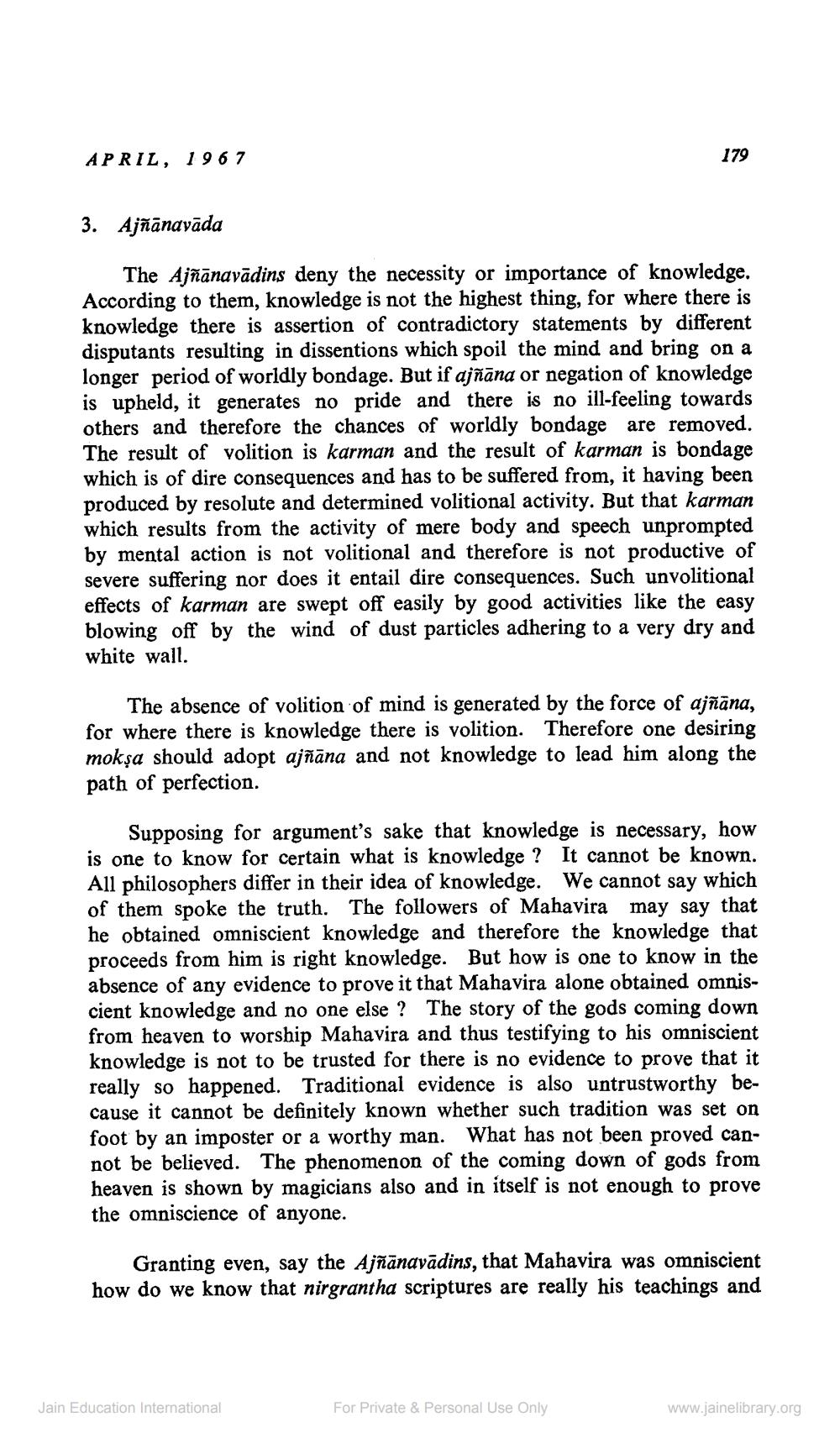________________
APRIL, 1967
3. Ajñānavāda
The Ajñānavādins deny the necessity or importance of knowledge. According to them, knowledge is not the highest thing, for where there is knowledge there is assertion of contradictory statements by different disputants resulting in dissentions which spoil the mind and bring on a longer period of worldly bondage. But if ajñāna or negation of knowledge is upheld, it generates no pride and there is no ill-feeling towards others and therefore the chances of worldly bondage are removed. The result of volition is karman and the result of karman is bondage which is of dire consequences and has to be suffered from, it having been produced by resolute and determined volitional activity. But that karman which results from the activity of mere body and speech unprompted by mental action is not volitional and therefore is not productive of severe suffering nor does it entail dire consequences. Such unvolitional effects of karman are swept off easily by good activities like the easy blowing off by the wind of dust particles adhering to a very dry and white wall.
179
The absence of volition of mind is generated by the force of ajñāna, for where there is knowledge there is volition. Therefore one desiring mokşa should adopt ajñāna and not knowledge to lead him along the path of perfection.
Supposing for argument's sake that knowledge is necessary, how is one to know for certain what is knowledge? It cannot be known. All philosophers differ in their idea of knowledge. We cannot say which of them spoke the truth. The followers of Mahavira may say that he obtained omniscient knowledge and therefore the knowledge that proceeds from him is right knowledge. But how is one to know in the absence of any evidence to prove it that Mahavira alone obtained omniscient knowledge and no one else? The story of the gods coming down from heaven to worship Mahavira and thus testifying to his omniscient knowledge is not to be trusted for there is no evidence to prove that it really so happened. Traditional evidence is also untrustworthy because it cannot be definitely known whether such tradition was set on foot by an imposter or a worthy man. What has not been proved cannot be believed. The phenomenon of the coming down of gods from heaven is shown by magicians also and in itself is not enough to prove the omniscience of anyone.
Granting even, say the Ajñānavādins, that Mahavira was omniscient how do we know that nirgrantha scriptures are really his teachings and
Jain Education International
For Private & Personal Use Only
www.jainelibrary.org




